
Part-Time Finance and Administration Officer Job Posting
Part-Time Finance and Administration Officer Application deadline – July 15, 2025 Location: Remote Job Description: Part-Time Finance and Administration Officer It Gets Better Canada (IGBC)
There are a lot of times where I look at my life in a ‘before and after’ type of lens. What I mean when I say this is that for so long, my identity as a disabled queer person was something that I went out of my way to hide from others. Even to people who were closest to me in my life.
I was born disabled. I have Marfan Syndrome and Ehlers Danlos Syndrome. I was told I have a “spontaneous mutation”, which to me mostly just meant there was no one around who looked like me or went through similar things. I felt different. I carried a lot of heavy and conflicting feelings pertaining to my identity. Whenever I did talk openly to someone about my disability, I felt like it was this metaphorical bomb being dropped. I always felt like I had this need to constantly “come out” to people. Like I owed an explanation for why my body was shaped uniquely, or questions about my wheelchair or feeding tubes.
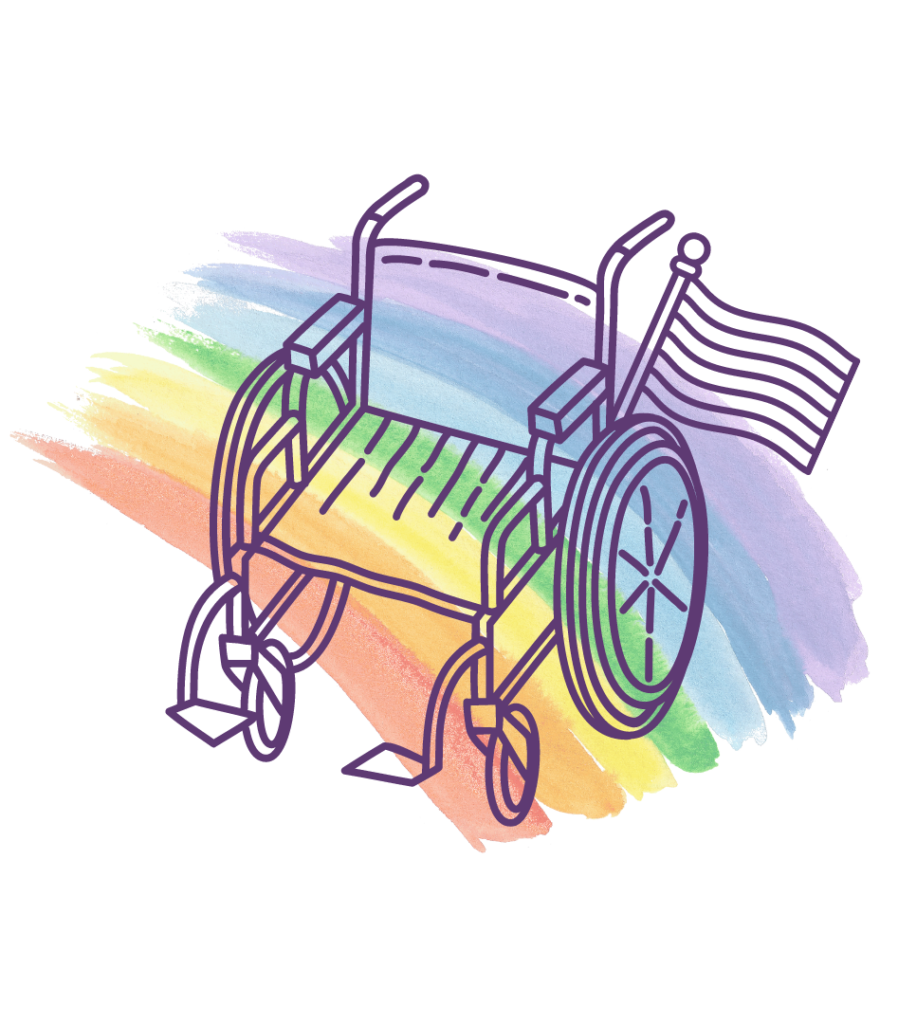
It felt hard to connect to other parts of myself behind the disability, sometimes. The external physical parts of me were the forefront of everything. Everything else took a back seat. It was hard to have the energy to reflect on my inner self. On top of all my physical health components happening, my mental health was really impacted by how poorly I viewed myself. I found it was easy for me to judge myself and convince myself that I didn’t ‘belong’ in any community because I wasn’t ‘enough’ of something in my eyes. When you’re asked to constantly come out as something that you aren’t even comfortable or sure you identify with, it can be confusing. Something I have to remind myself of is that at the end of the day we aren’t required to give any answer we are uncomfortable giving. No one is entitled to your privacy.
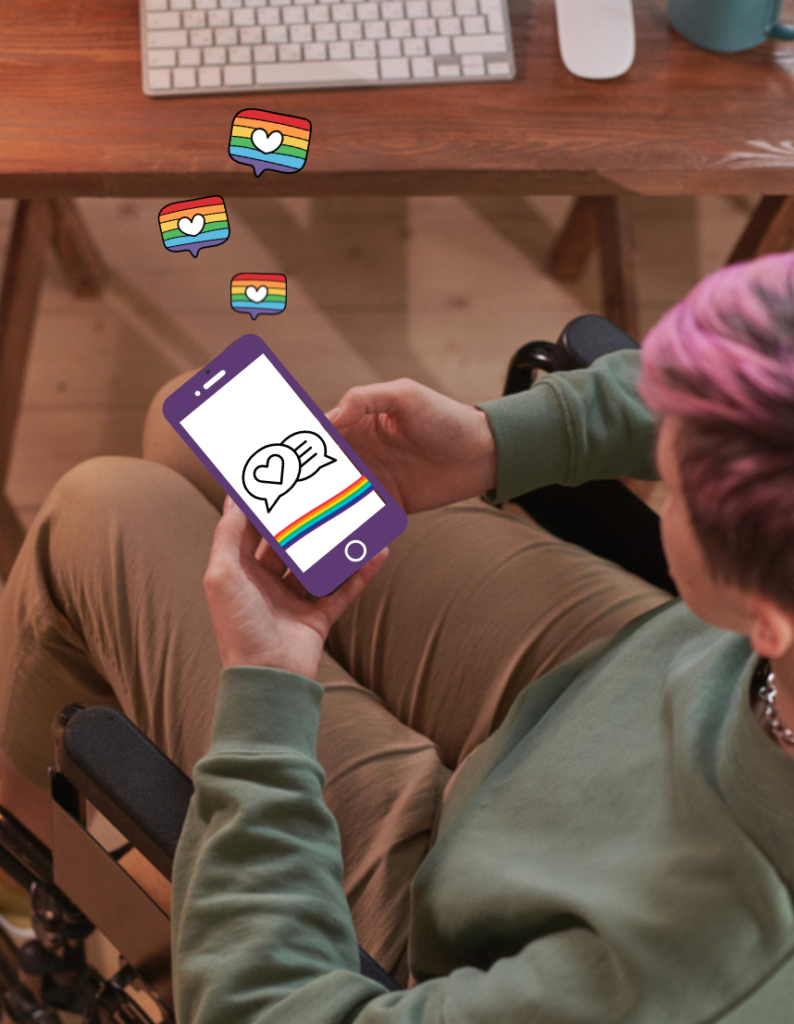
I went from having no one to relate to, to finding people with shared experiences and a place where I felt so proud to be. I’m happily in a place now in my life where my identity as a disabled person is not something I need to ‘come out’ with, because it simply just is. It’s just me. I realized how many other parts of my being were being suppressed because I was trying so hard to fit in.. Finding this clarity allowed me the space to also explore and welcome my queer identity. It gave me space to feel out and explore my gender identity. I was able to find this beautiful space within myself where these big parts of me could dance loudly and intertwine. A place where I found the fight to advocate and educate in ways that feel good to me. I know I can set boundaries around what needs to “come out” or be shared, and what I want to keep to myself.
To anyone seeking advice on where to start making connections – the internet has been such an accessible blessing. Finding local meetups through searches, connecting with real people through social media, specialized groups with people with shared diagnoses. Depending on location there can be access to Community funded programming as well. Libraries also can be known to run great accessible classes. There are so many ways to connect and learn. I am so fortunate to know and now have so many friends and chosen family who not only accept me fully as I am, but pave the way for so many by talking about their own lived experiences and showing people that you can be so many beautiful things and disabled simultaneously. Parents, partners, professionals, athletes, queers, the list goes on.
We are told so often that we cannot be any or all these things and disabled. We may need to ‘come out’ or advocate for ourselves in different ways in different settings. We may face barriers in our way, but we will always have each other.
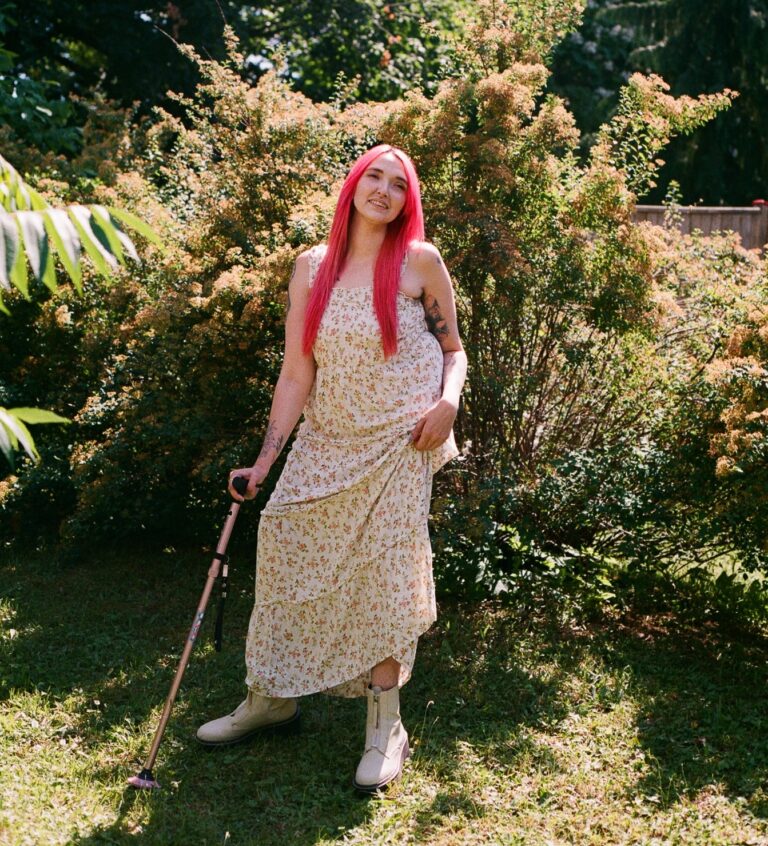
Amy Miller (they/them) lives in Midland, Ontario with their small family. They were born multiply disabled and chronically ill. Amy has been an ambulatory wheelchair user most of their life and rely on other aids to help them get around. Amy identifies as queer and nonbinary and is passionate about volunteering in their community connecting local 2SLGBTQIA+ people and organizations as well as volunteering in the disability community. Aside from that, they enjoy spending their time with their nose in a book, baking something sweet, or putting together a puzzle with their son.
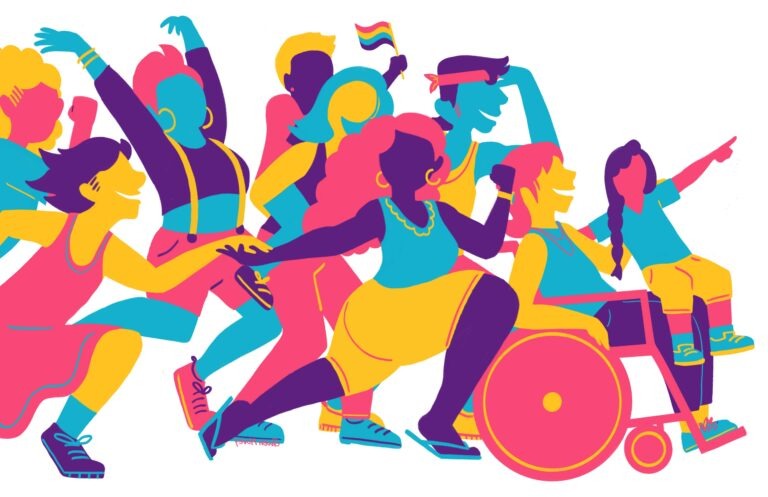
It Gets Better Canada is committed to connecting Canada’s 2SLGBTQ+ youth to a better future
Help us uplift, empower, and connect today’s youth across Canada today!
Your donation is eligible for a charitable tax receipt
Support the Movement

Part-Time Finance and Administration Officer Application deadline – July 15, 2025 Location: Remote Job Description: Part-Time Finance and Administration Officer It Gets Better Canada (IGBC)

About the day The International Day Against Homophobia, Transphobia and Biphobia is observed annually on May 17th. This day was created to raise awareness and
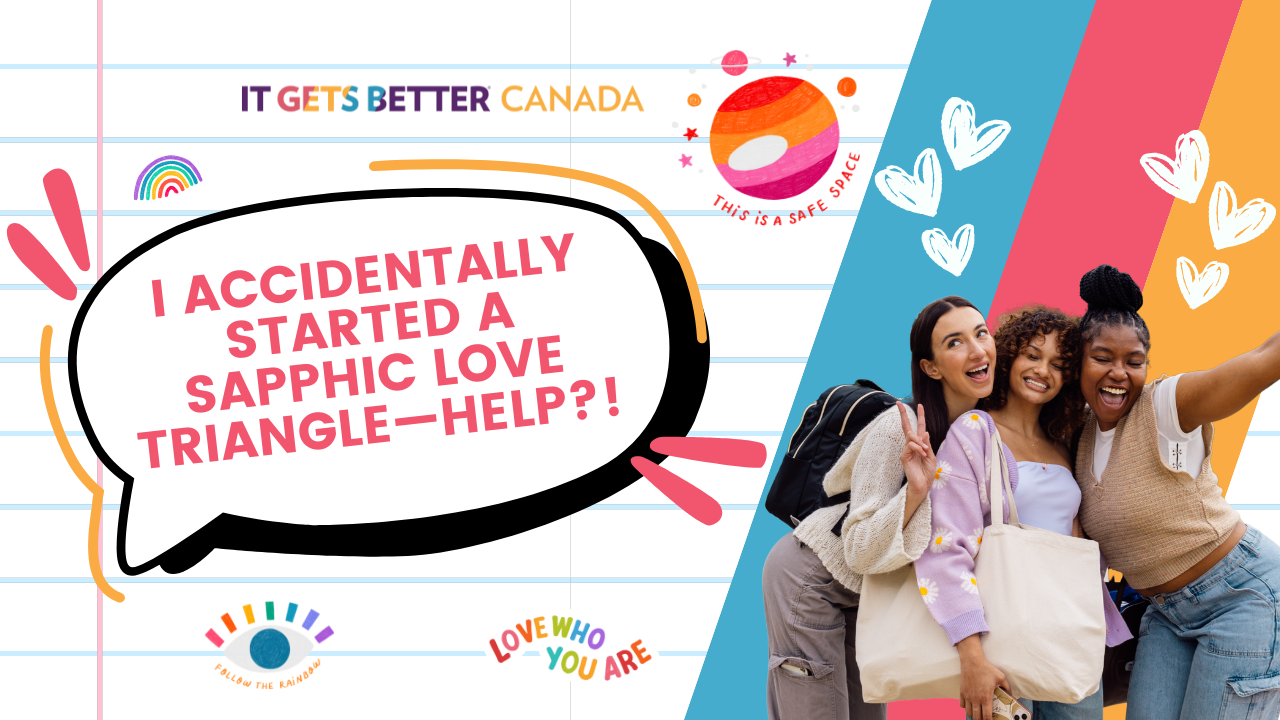
Dear Queer, So… I think I may have unknowingly written myself into the plot of a messy queer romance novel. I (24F) recently started casually
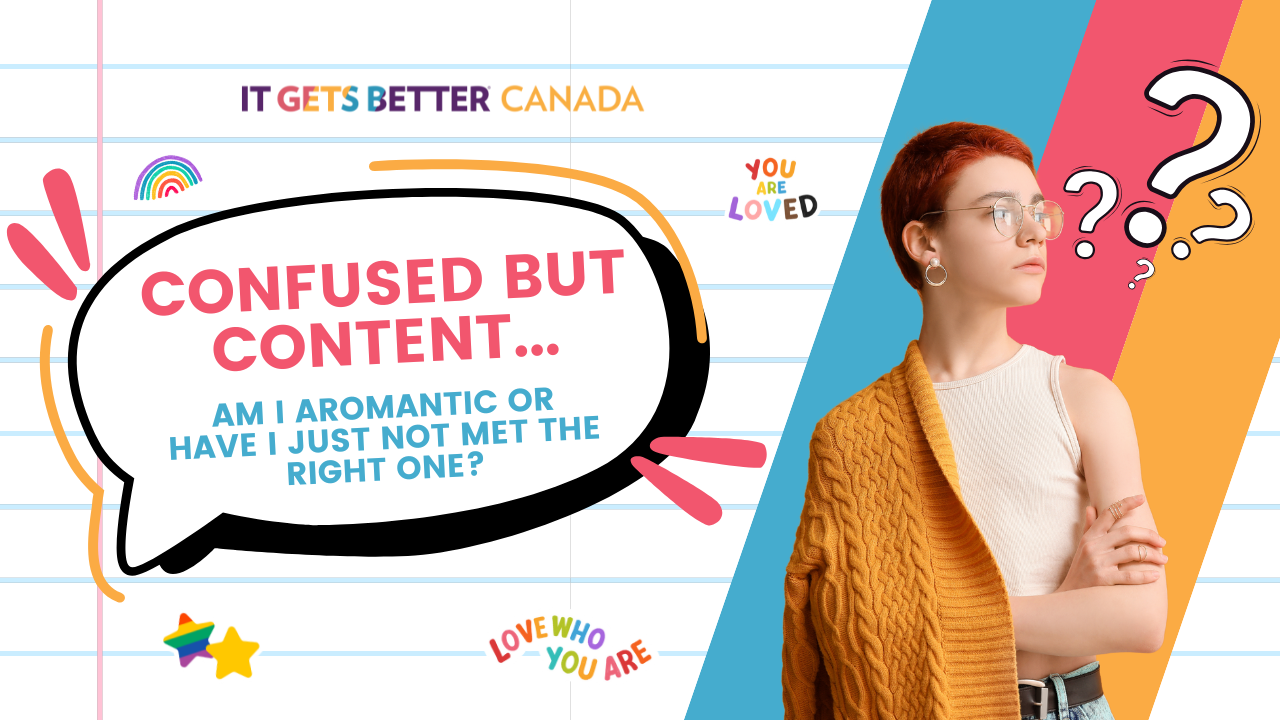
Dear Queer, Lately, I’ve been questioning my sexuality because I think I might be aromantic. I’ve never really felt romantic attraction, but I have deep,

It Gets Better Canada is proud to receive over $1.5 million in federal funding It Gets Better Canada is proud to announce that we have

